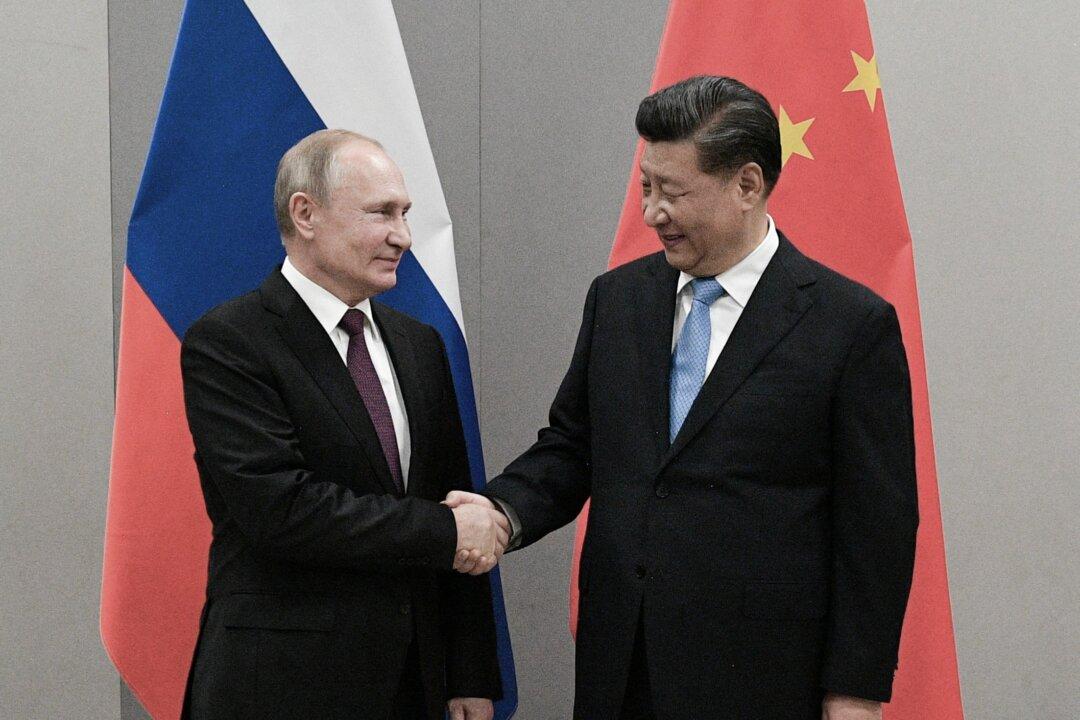The Chinese Communist Party (CCP) hopes to capitalize on Russia’s current isolation by rendering it more dependent on Beijing, according to one expert.
To achieve that goal, however, Beijing will need to provide Russia with assistance that flies under the radar of Western nations, which has leveled a slew of sanctions on Moscow over its invasion of Ukraine.




